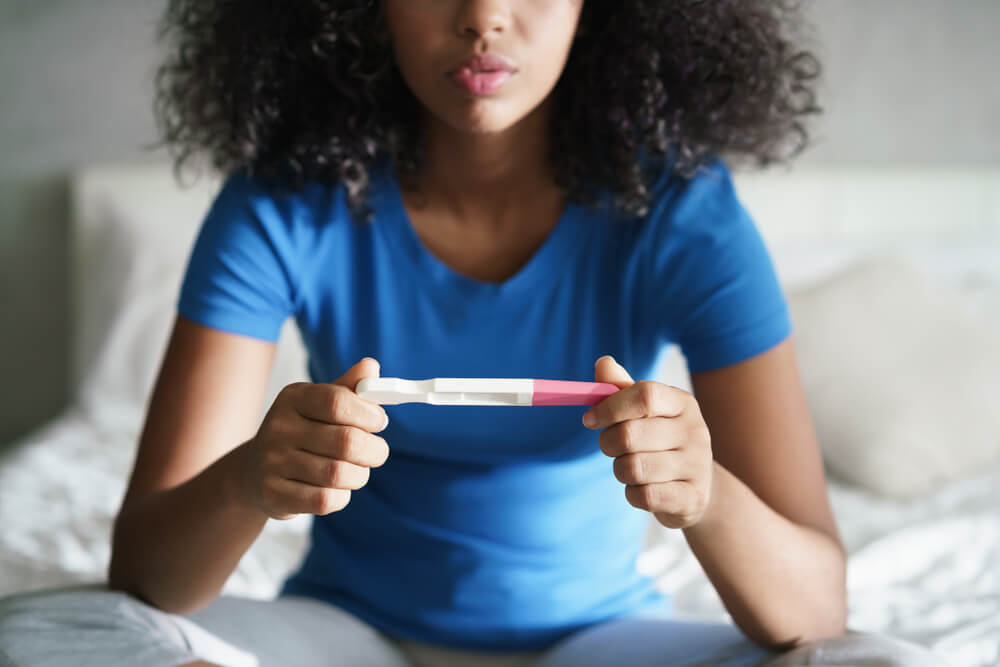The moment you suspect you might be pregnant is often filled with a mix of excitement, anxiety, and curiosity. One of the first steps many take is using a home pregnancy test. However, understanding when to take a pregnancy test is crucial for accurate results. In this comprehensive guide, experts at OBGYN in Coral Springs, Florida, will delve into the best timing, the reasons behind it, and the difference between home pregnancy tests and a pregnancy blood test.
Understanding Pregnancy Tests
Pregnancy tests are designed to detect the presence of the hormone human chorionic gonadotropin (hCG) in your urine or blood. This hormone is produced after a fertilized egg attaches to the lining of the uterus and is a reliable marker of pregnancy.
When to Take a Pregnancy Test
How early can you take a pregnancy test is a question many ask. The timing of taking a pregnancy test is crucial for an accurate reading:
- Wait for Your Missed Period: The most recommended time to take a home pregnancy test is after you’ve missed your period. Testing too early can lead to a false negative pregnancy test result.
- Understand the Test’s Sensitivity: Different tests have varying sensitivities to hCG. Some can detect lower levels of the hormone and be used earlier than others.

The Science Behind the Timing
- Implantation and hCG Production: Implantation, when the fertilized egg attaches to the uterine lining, typically occurs about 9 to 10 days after ovulation. After implantation, the body begins to produce hCG.
- hCG Levels and Detection: The levels of hCG double approximately every 48 to 72 hours. Most pregnancy tests are designed to detect hCG levels about 10 to 14 days after fertilization, around the time of your expected period.
Early Pregnancy Symptoms and Testing
Some women opt to take a pregnancy test before missing their period due to early pregnancy symptoms. However, taking a test too early increases the chances of a negative pregnancy test, even if you are pregnant. If you experience symptoms like nausea, breast tenderness, or fatigue before your missed period, it might be worth waiting a few days to a week before testing.
Pregnancy Blood Test: An Alternative
If you require a more sensitive and definitive test, consider a pregnancy blood test. These tests can detect pregnancy earlier than urine tests and are usually administered in a doctor’s office.
False Negatives and Retesting
Receiving a negative pregnancy test result doesn’t always mean you are not pregnant, especially if tested early or if the test was not conducted properly. If you still suspect pregnancy after a negative test:
- Retest After a Few Days: Wait a few days to a week and retest. Your hCG levels may not have been high enough to be detected initially.
- Consider a Pregnancy Blood Test: For a more accurate and early result, a pregnancy blood test might be the next best step.
Impact of Irregular Menstrual Cycles
Women with irregular menstrual cycles may find it more challenging to determine the best time to take a pregnancy test. In such cases, waiting a few weeks after the earliest expected date of your period might yield more accurate results.
The Accuracy of Pregnancy Tests
Most home pregnancy tests claim to be about 99% accurate when taken correctly and at the right time. However, factors like the test’s sensitivity, the time of day it is taken (morning urine typically has higher concentrations of hCG), and adherence to test instructions can affect accuracy.
When to Consult a Healthcare Provider
Regardless of the result, if you have concerns about your pregnancy or fertility, it is advisable to consult with a healthcare provider. They can offer guidance, conduct a pregnancy blood test for confirmation, and provide early pregnancy care advice.
The Role of Hormone Variations in Pregnancy Tests
It’s important to understand that hormone levels can vary significantly among women. Some women may have naturally lower levels of hCG even after a missed period, leading to a negative pregnancy test. Conversely, some may have higher levels of hCG even before their missed period, allowing for an early positive result. Factors like the time of day the test is taken and the concentration of your urine can also affect hCG levels, which is why many tests recommend using the first urine in the morning for more accurate results.
Digital vs. Standard Pregnancy Tests
In the market, you’ll find both digital and standard (line-based) pregnancy tests. While digital tests can be easier to read, offering a clear ‘pregnant’ or ‘not pregnant’ result, they may not always be more sensitive than standard tests. The choice between digital and standard tests depends on personal preference, but it doesn’t significantly impact when to take the test for accurate results.
Understanding Evaporation Lines
An evaporation line on a pregnancy test can sometimes be mistaken for a positive result. This faint line can appear in the test window as the urine dries. It’s important to read the results within the time frame specified in the test instructions to avoid misinterpreting evaporation lines as a positive result.
The Impact of Medications on Pregnancy Tests
Certain medications, especially those containing the hCG hormone used in fertility treatments, can affect the accuracy of both home pregnancy tests and pregnancy blood tests. If you are taking any medications, it’s advisable to discuss with your healthcare provider how they might impact the timing and accuracy of a pregnancy test.
Repeat Testing for Confirmation
If you receive a positive result from a home pregnancy test, it’s generally recommended to confirm the pregnancy with a pregnancy blood test at your doctor’s office. This confirmation is especially important if you’ve been experiencing irregular cycles or have a history of fertility issues.

Ectopic Pregnancy and Test Results
In rare cases, an ectopic pregnancy (where the embryo implants outside the uterus) might yield a positive home pregnancy test result. However, this type of pregnancy cannot proceed normally and can be life-threatening. If you experience severe pain, dizziness, or heavy bleeding after a positive test, seek immediate medical attention.
The Psychological Impact of Taking a Pregnancy Test
Finally, it’s essential to acknowledge the emotional and psychological impact of taking a pregnancy test, especially for those who have been trying to conceive for a long time or have experienced fertility issues. The process can be fraught with anxiety and hope. Regardless of the result, support from partners, loved ones, or a professional counselor like Dr. Jessica White can be invaluable during this time.
Conclusion
Knowing when to take a pregnancy test is pivotal for accurate results. While home pregnancy tests offer a convenient and private way to check for pregnancy, understanding their timing, sensitivity, and the possibility of false negatives is essential. For those seeking more definitive answers, especially in cases of irregular cycles or early testing, a pregnancy blood test can be a more reliable option. Remember, while home tests are a great first step, consulting with a healthcare professional is always recommended for comprehensive care and guidance during your pregnancy journey.


